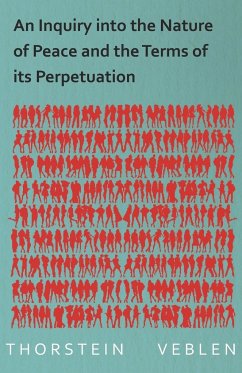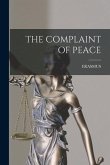Thorstein Veblen was a well known economist and sociologist in early 20th century America. This treatise on the nature of peace is a fascinating glimpse into academic thought in 1919, the year after the armistice which ended the great war. Peace, and the perpetuation of it, was forefront in almost all great minds, Veblen's included. The global community had to move forward, away from the bloodshed that had destroyed a generation and in to a future that was peaceful, united and prosperous. Veblen's text is a classic of the era. We are republishing this work with a brand new short introductory biography of the author.
Bitte wählen Sie Ihr Anliegen aus.
Rechnungen
Retourenschein anfordern
Bestellstatus
Storno









